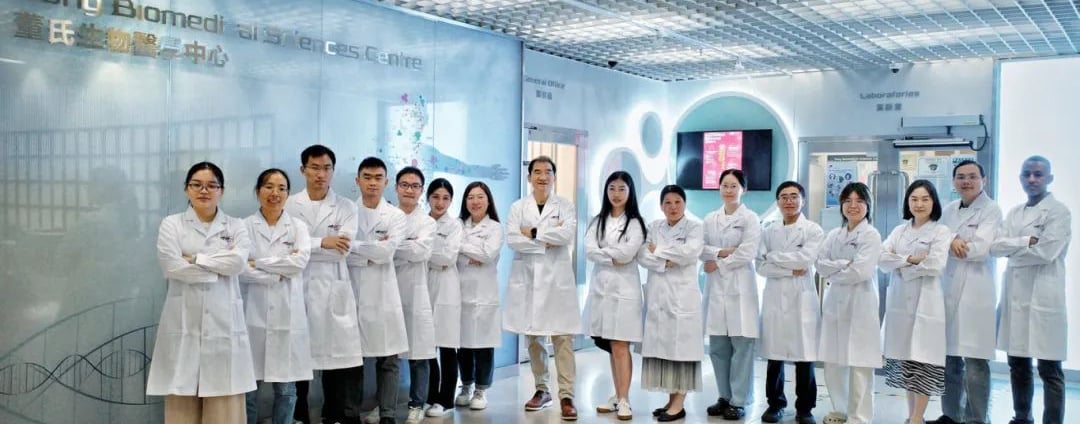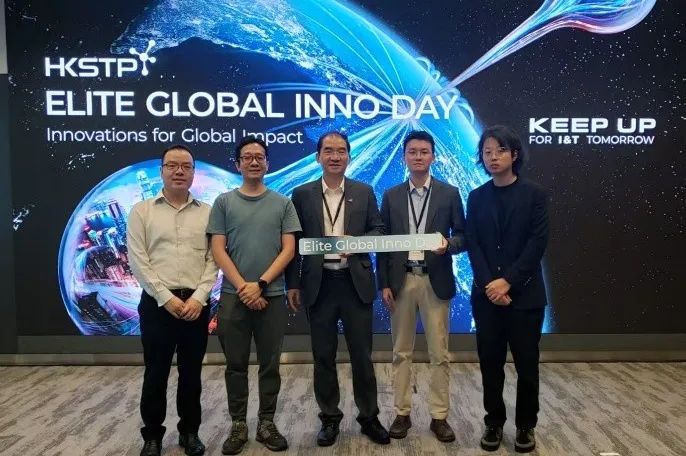让基因科技惠及每一个家庭
CityU Vice President Leads Development of CTC-Based Early Cancer Screening Technology, Aiming for Industrialization within Two Years
3/12/20252 分钟阅读


City University of Hong Kong (CityU) has launched a research project focused on early cancer screening, aiming to develop an innovative technology platform for early cancer detection and personalized treatment. The project, particularly emphasizing the improvement of circulating tumor cell (CTC) detection technology, is one of the first research initiatives funded under the Hong Kong Special Administrative Region Government's "Research, Application, and Industrialization 1+ Program" (RAISe+).
About the "RAISe+" Program
The "RAISe+" program, launched in October 2023, is a funding initiative with a budget of HKD 1 billion. It aims to accelerate the translation of research outcomes from "1 to N," promoting collaboration among the government, industry, universities, and research institutions. The program provides matched funding for the commercialization of research results from local universities, with a maximum of HKD 100 million per project.
Project Details
The funded project, titled "A Microfluidic-Based Circulating Tumor Cell Detection Platform and Its Applications in Early Cancer Screening and Disease Monitoring," is led by Professor Mengsu Yang, Senior Vice-President (Innovation and Enterprise) and Chair Professor of Biomedical Sciences at CityU. The project is dedicated to developing a new generation of highly sensitive and specific CTC detection platforms to meet clinical demands for early cancer screening, diagnosis, and treatment.
CTC Detection: Driving Personalized Cancer Treatment
Professor Yang explained, "Circulating tumor cells (CTC) are cancer cells that detach from the primary tumor and enter the bloodstream, carrying molecular genetic and cellular information related to the primary tumor. Precise diagnosis and comprehensive analysis of CTC using multi-omics technologies are crucial for early cancer screening, disease monitoring, and the development of cell-based therapies and mRNA vaccines targeting specific antigens. This will further promote personalized cancer treatment."
Professor Yang's research team has long been committed to developing biochips and nanotechnologies for molecular diagnosis and treatment. The team has successfully translated several research outcomes and co-founded several biotech companies based on CityU's patented technologies, benefiting millions of patients. In 2024, Professor Yang was elected as a Fellow of the National Academy of Inventors in the United States, in recognition of his outstanding contributions to innovation, social welfare, and economic development.
Industry-Academia-Research Collaboration to Drive Research Translation
Under the RAISe+ program, Professor Yang's team will collaborate with their biotech company, "CrystalMed," to develop a new generation of microfluidic-based CTC detection platforms. By integrating microfluidic chip technology with immunomagnetic bead separation strategies, the platform will leverage the physical and biological characteristics of CTC to achieve highly sensitive and specific screening. Professor Yang noted, "CTC detection faces challenges such as low abundance in blood samples, cellular heterogeneity, and complex blood matrices. Efficient and specific enrichment and characterization technologies are needed, along with the establishment of in vitro CTC culture systems for in-depth analysis, laying the foundation for personalized cancer vaccines and cell therapies."
Targeting Industrialization within Two Years
The research team aims to develop an integrated system comprising an automated CTC sorter, a cell staining and imaging system, and accompanying detection reagent kits. This system will cover CTC enumeration and subtyping, protein and gene detection, and meet the needs of precision medicine for early cancer screening, diagnosis, drug selection, treatment efficacy assessment, and prognosis monitoring.
Professor Yang stated, "The project aims to establish and industrialize a CTC detection system for cancer screening and monitoring within the next two years, improving early detection rates and enhancing patient treatment outcomes and quality of life."


